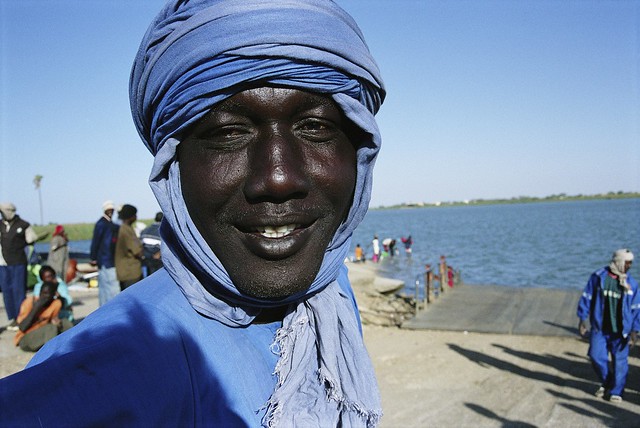Equatorial Guinea (EQG) is an upper-middle-income country. It is composed of a mainland, Río Muni, and small islands including Bioko (where the capital, Malabo, is located), Annobón, Corisco, Elobey, and others. Its population was estimated at 1.5 million people in 2021. The country is bordered in the north by Cameroon, in the east and south by Gabon, and to the west by the Gulf of Guinea. It is well endowed with arable land and has abundant mineral resources, including gold, uranium, diamond, columbite-tantalite, and gas and oil, discovered in the 1990s.
Political Overview
In power since 1979, President Teodoro Obiang Nguema Mbasogo was re-elected for a six-year term on November 26, 2022, with 94.9% of the ballots. The absence of real checks and balances grants his political party, “El Partido Democratico de Guinea Ecuatorial (PDGE)”, absolute executive power. The PDGE won almost all the seats at the Chamber of Deputies, the Senate, and at the municipality level. General elections, including municipal, legislative, and presidential elections, were held on the same day.
In April 2022, President Obiang initiated consultations with different parties to organize the coming legislative elections and launched an electoral census in the country. In early September 2022, the parliament had approved a move to prepone the presidential elections to November 20, 2022, while the presidential term expired in April 2023. Government officials of Equatorial Guinea had based this decision on the current economic downturn and the consequent need to streamline public expenditure.
The new Prime Minister, Manuel Osa Nsue Nsua, born in 1961, is an Equatoguinean statesman. He was appointed Prime Minister of Equatorial Guinea on August 17, 2024 to succeed Manuela Roka Botey. From 2012 to 2024 he served as head of the National Bank of Equatorial Guinea.
On February 14, 2023, the European Parliament adopted a resolution on the respect for human rights in Equatorial Guinea, urging EU member states to demand an end to all political persecution.
Economic Overview
Equatorial Guinea’s oil-dependent economy has contracted over the past decade amid a shrinking hydrocarbon sector, declining investment, and a series of external and domestic shocks. Between 2013 and 2023, economic activity contracted by 4.1% per year on average. Gross national income (GNI) per capita was estimated at $5,240 in 2023, a 58% decrease compared to its peak level in 2008.
Structural reforms are needed to prevent long-term economic decline, by diversifying growth drivers and building fiscal stability through domestic revenue mobilization efforts and more efficient public spending. Reforms have been adopted in recent years to improve governance and the business environment, including the passage of an anti-corruption law, the signature of a decree establishing a treasury single account, the drafting of a procurement law and a revised tax law, and more recently the passage of a presidential decree that introduces economic and financial measures to support the sustainability of the economy and public finances. However, weaknesses persist in the governance of extractive revenues, human capital outcomes, and the business environment, preventing the country from achieving sustained, diversified, and inclusive growth.
Despite its upper middle-income status, Equatorial Guinea ranks only 133rd out of 193 countries on the Human Development Index. Living standards remain low with life expectancy at birth estimated at 60.7 years. The II National Household Survey report, scheduled to be released in 2024, will fill knowledge gaps in poverty and inequality, enabling evidence-based policies to boost human development and reduce poverty.
Economic and social Outlook
The Equatoguinean economy is set to grow by 4.7% in 2024, driven by a rebound in the hydrocarbon sector thanks to expected repairs on hydrocarbon platforms following recent incidents. Barring strong structural reforms and substantial new hydrocarbon discoveries, average annual growth is projected at -2.6% in 2025-2026, reflecting mostly declining hydrocarbon production. Following a projected improvement in 2024, the current account balance is forecast to deteriorate over the medium term to an average of –2.7% of GDP over 2025-2026 due to declining hydrocarbon export earnings. The fiscal balance is projected to improve to 3.4% of GDP in 2024 thanks to an increase in hydrocarbon revenues and fiscal consolidation but it will decrease in 2025-2026 as hydrocarbon revenues continue to decline.
Risks to the outlook are tilted to the downside. A stronger decline in hydrocarbon production or prices would reduce the fiscal space and risks external stability given Equatorial Guinea’s overdependence on oil. Global trade disruptions affecting commodity and food prices amid a protracted war in Ukraine would increase food insecurity especially for the most vulnerable, as the country relies heavily on food imports. A further tightening of global financial conditions and lower demand from China and India, Equatorial Guinea’s main export partners, could also undermine growth. On the upside, the government is continuing its efforts to optimize hydrocarbon reserves.
The secular decline in hydrocarbon reserves indicates the need for Equatorial Guinea to adopt a new growth model and better leverage the remaining hydrocarbon resources to unlock alternative sources of growth. Ultimately, implementing the country’s economic diversification vision will require efforts to advance the governance and anti-corruption agenda, facilitate trade, boost human capital development, and improve the business environment and public financial management.
Last Updated: Oct 18, 2024








